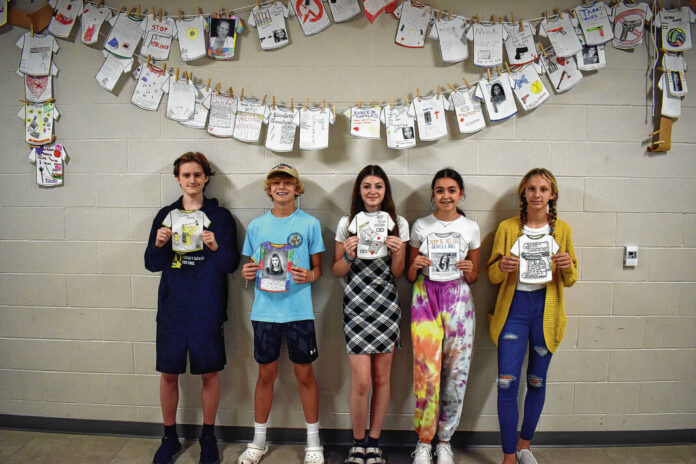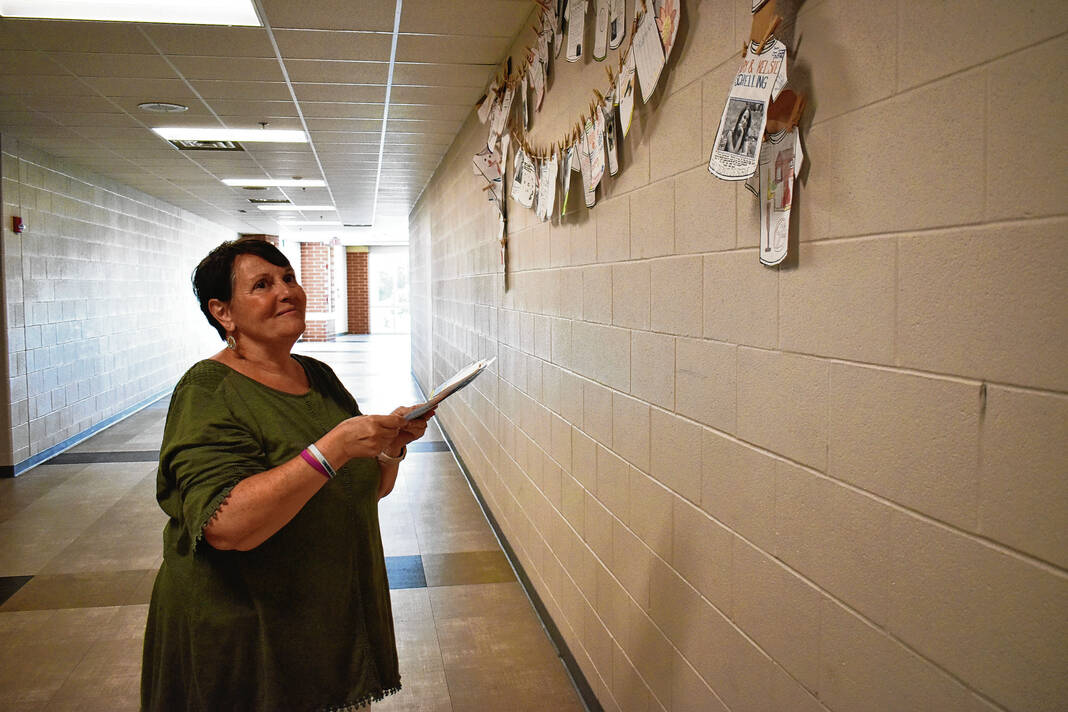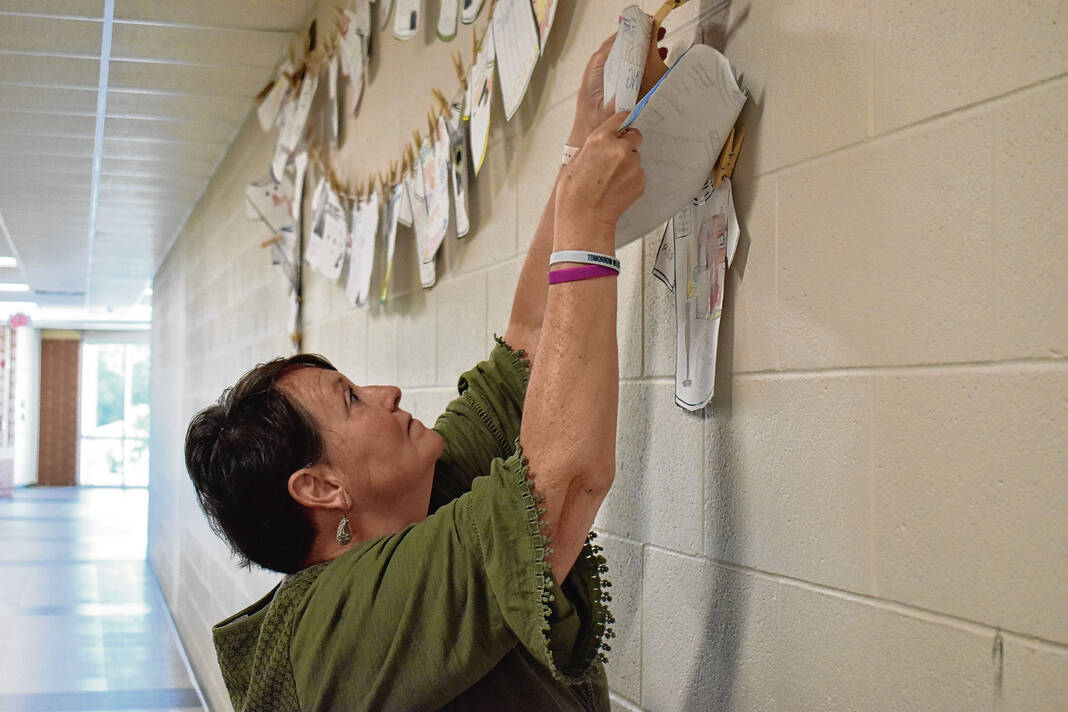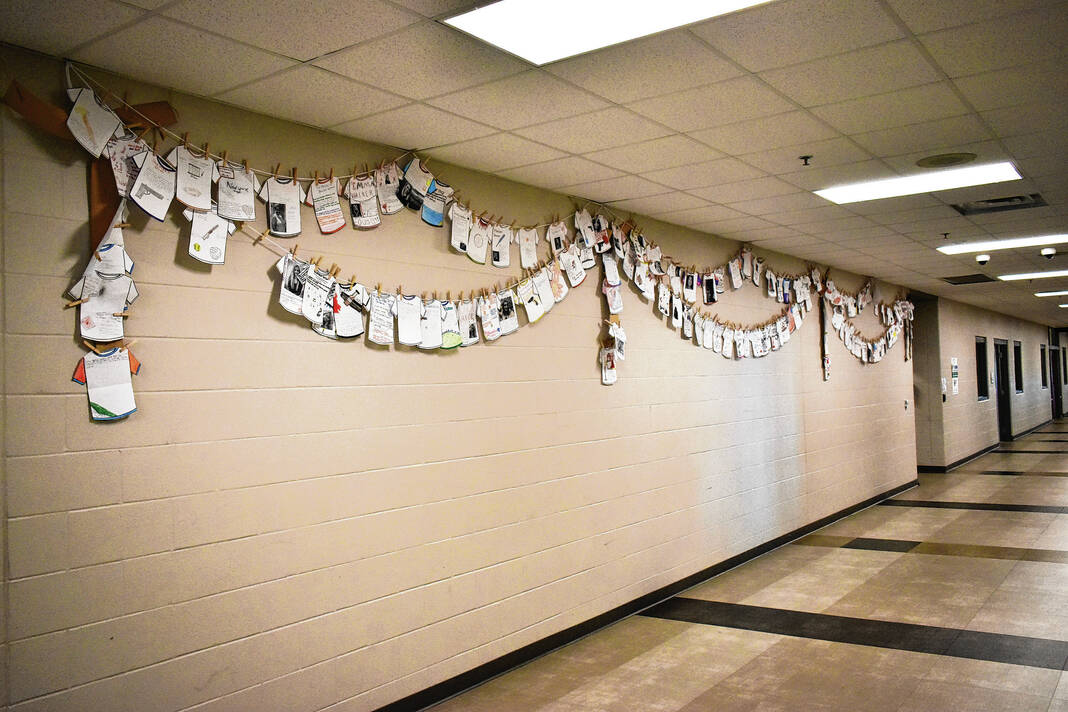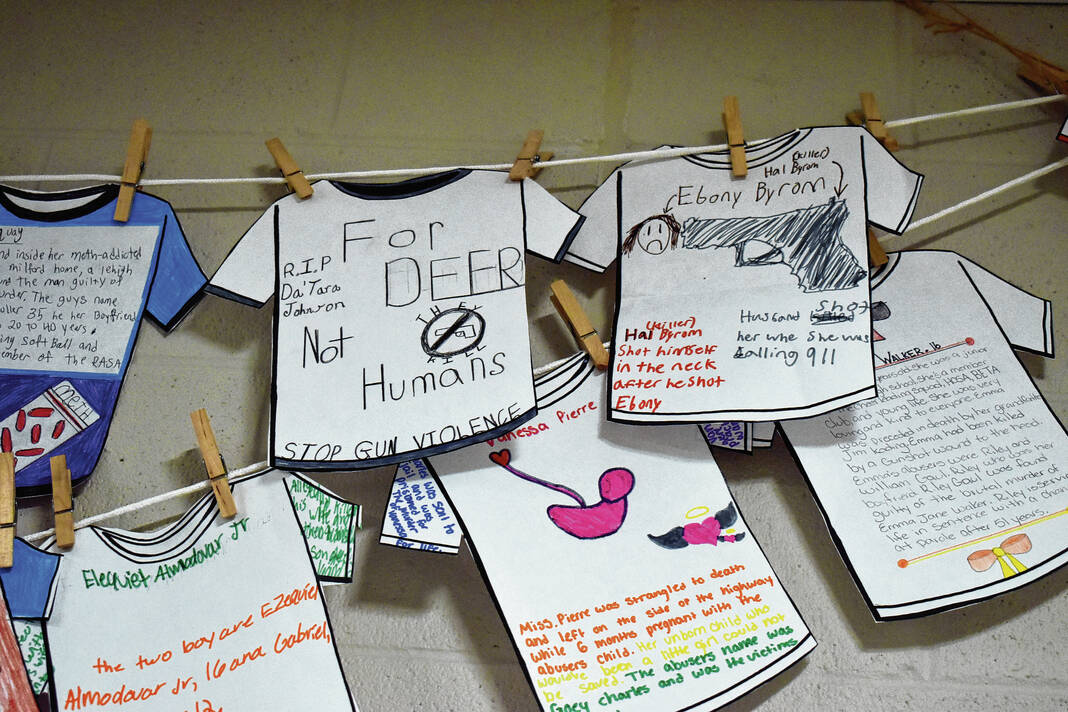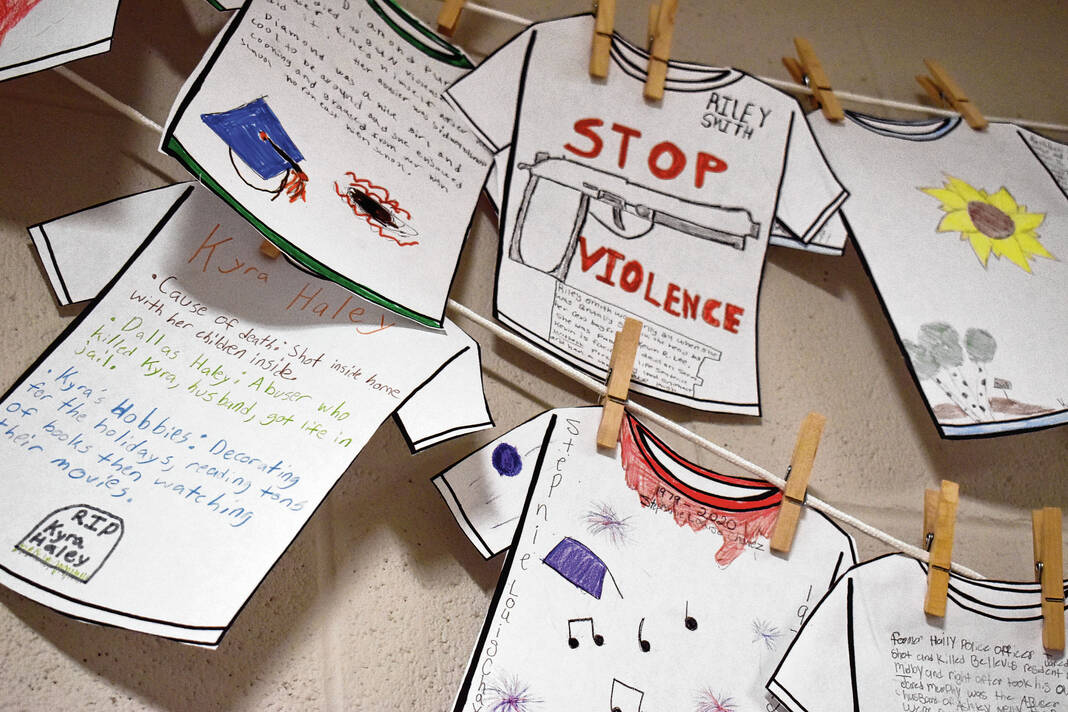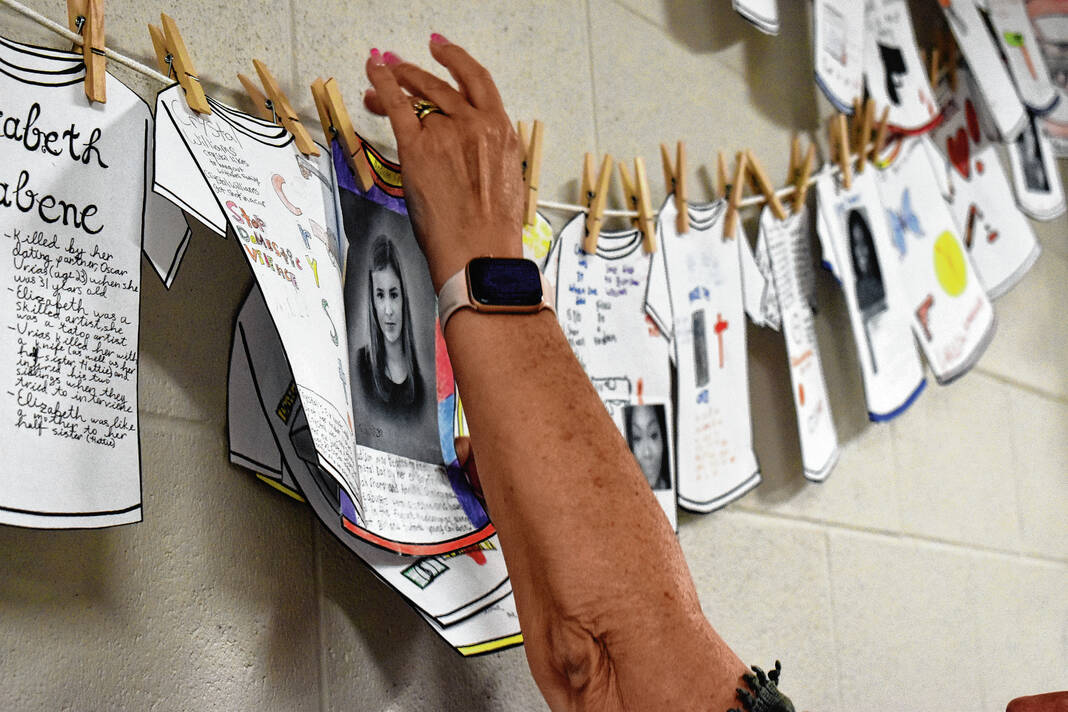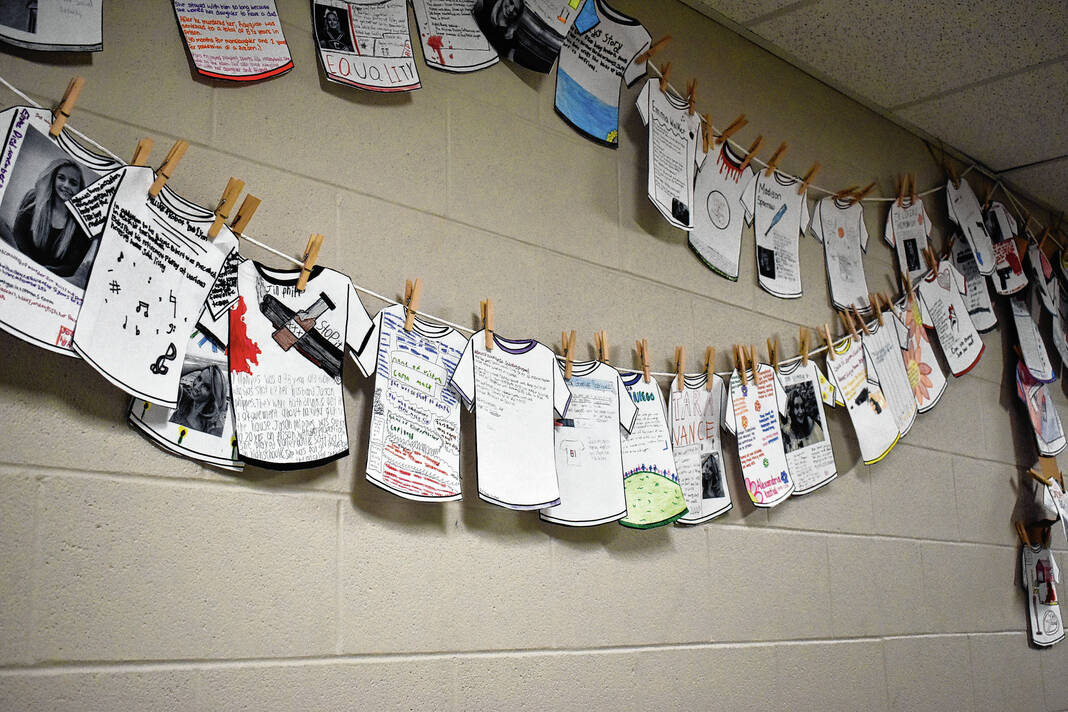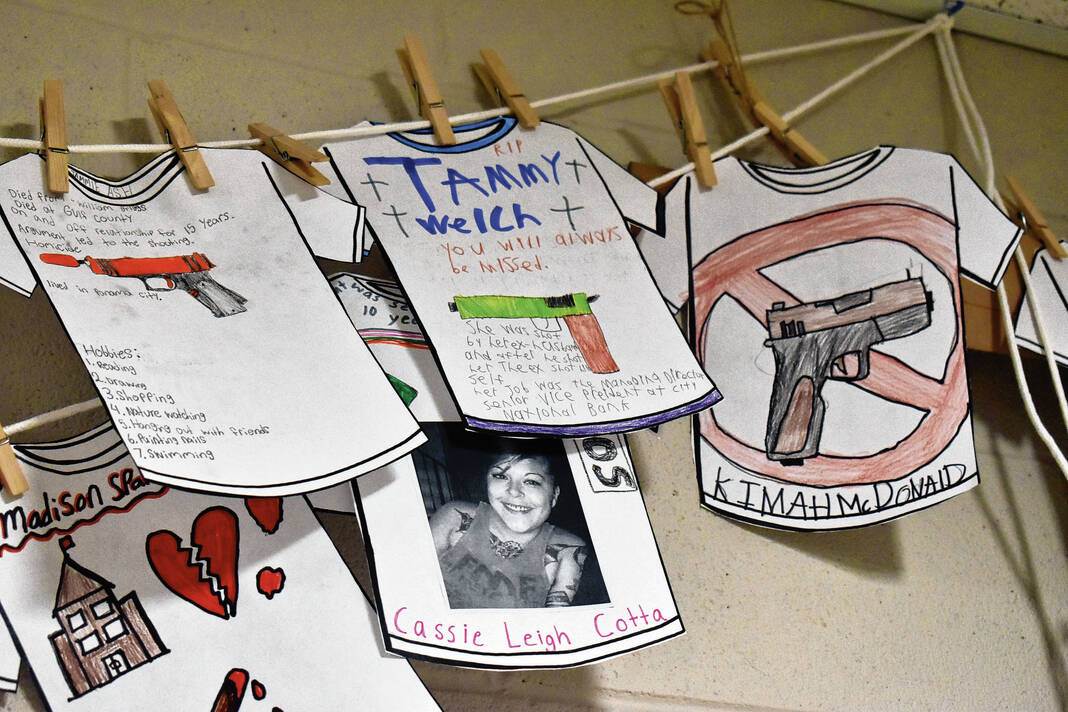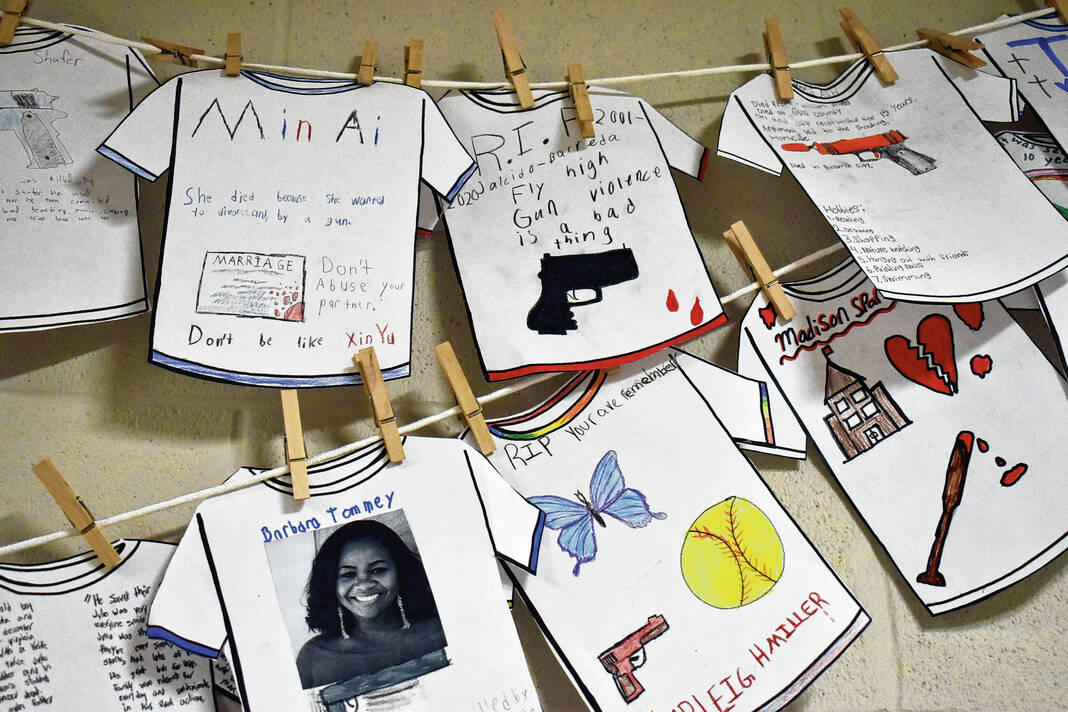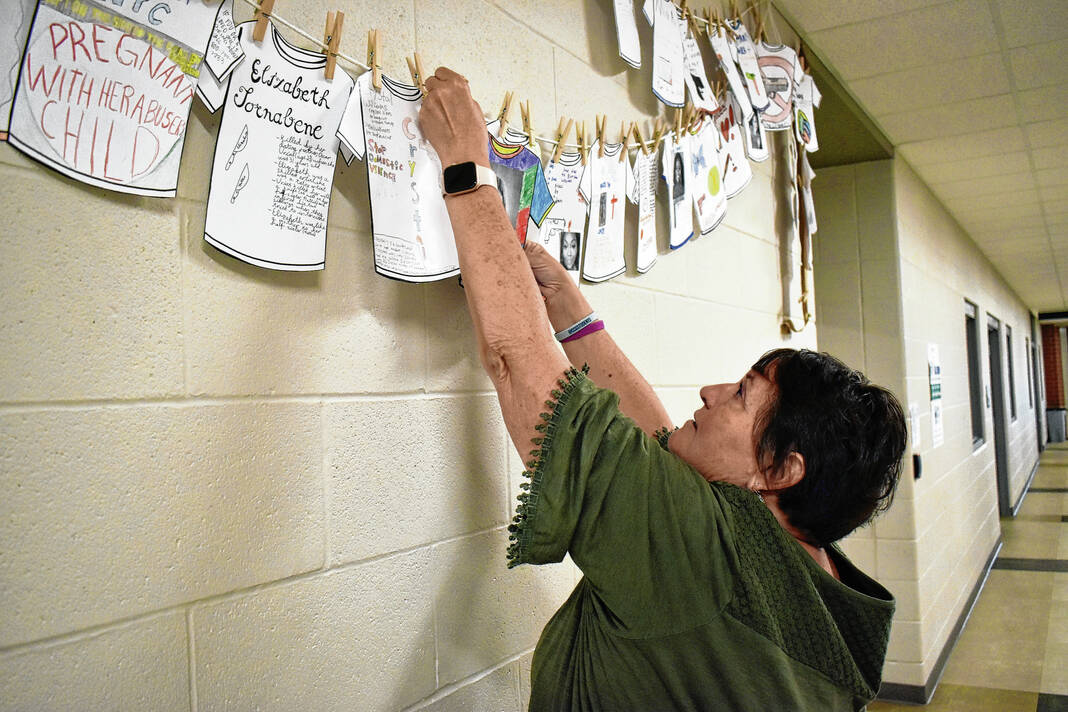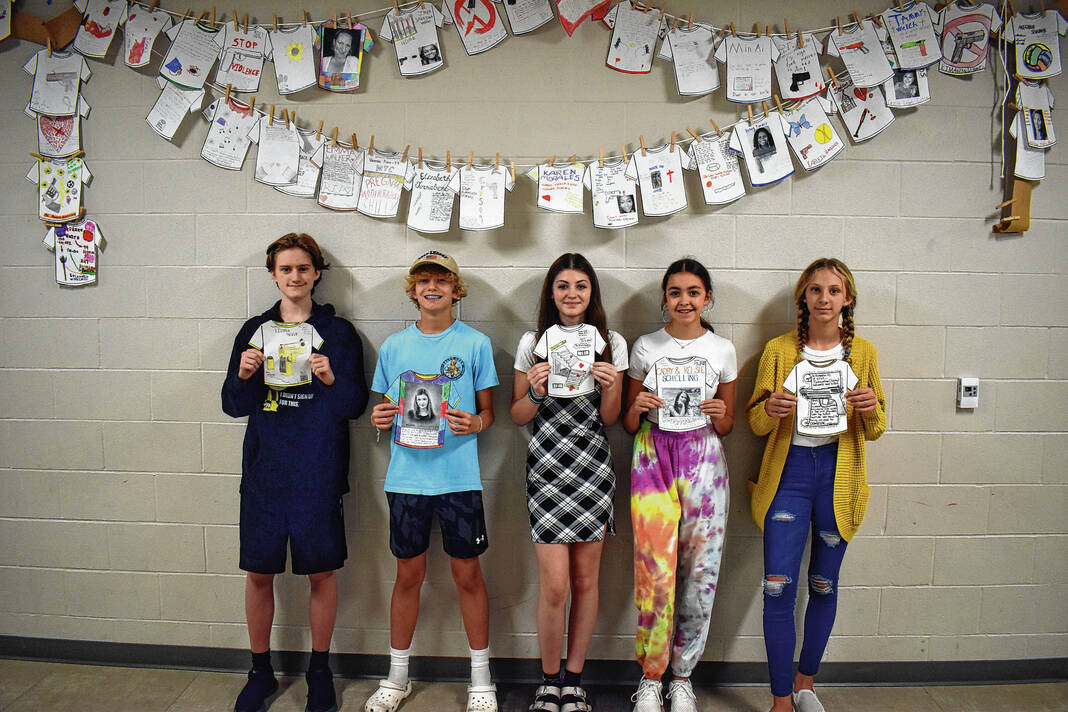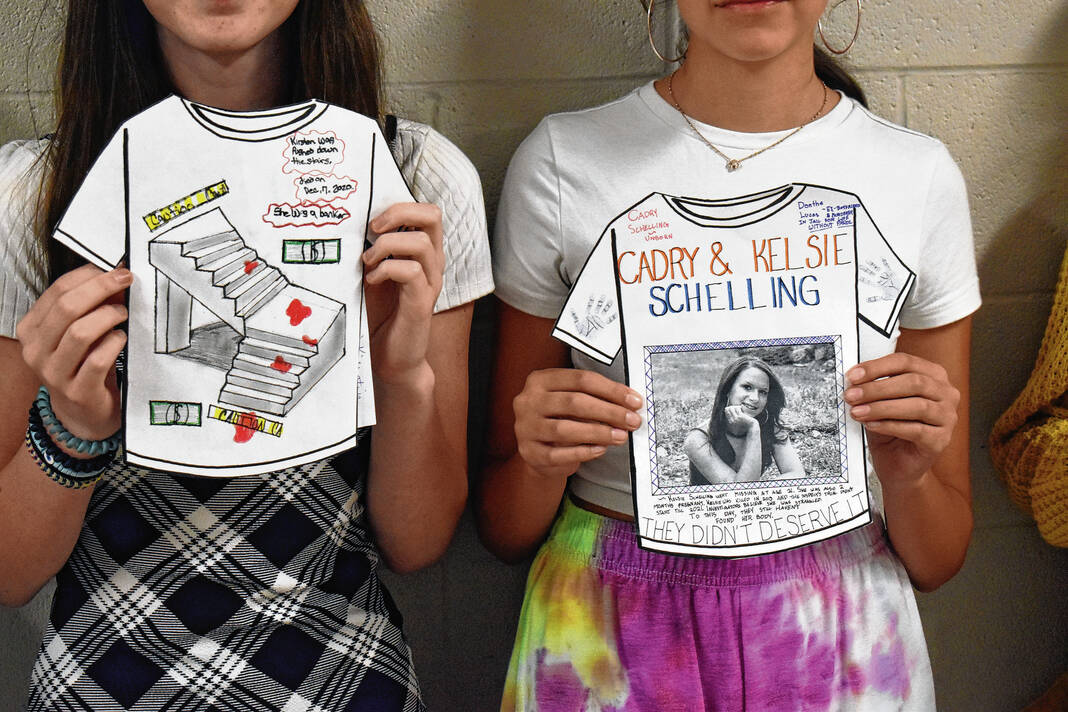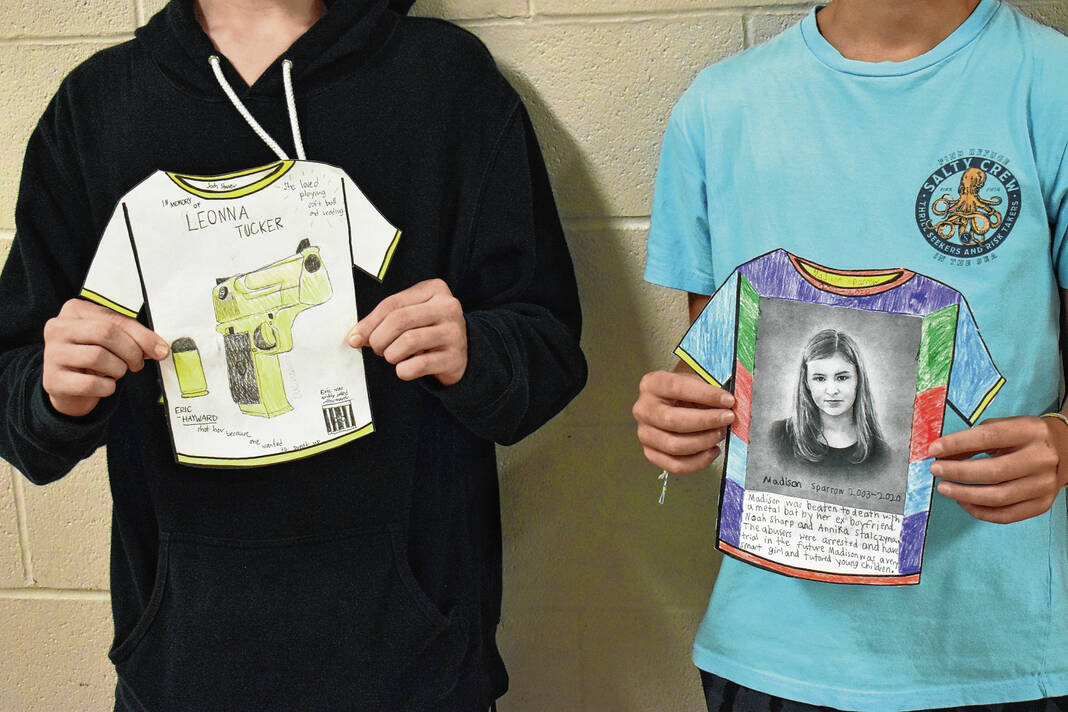Each shirt hanging on a wall on the second floor of Greenwood Middle School represents a tragic story.
Drawn and customized by students, each shirt features researched information about an individual who lost their life to domestic violence. The purpose of the project is to make sure the victims are remembered.
One shirt features Madison Sparrow, a 17-year-old who was beaten to death by her ex-boyfriend. Another focuses on Megan McNeil, a 27-year-old Massachusetts nurse who was fatally shot by her boyfriend, who later killed himself.
The T-shirts are part of The Clothesline Project, which raises awareness for assault and abuse survivors, and is the culmination of a nearly month-long safe dating in Maureen Hoffman-Wehmeier’s eighth grade Family and Consumer Science Class, or FACS, that began at the start of the school year on Aug. 3.
As part of the project, the roughly 156 students in Hoffman-Wehmeier’s class researched individuals who lost their lives to domestic abuse. The students were first given a list of names of domestic violence victims, excluding children. From there, the students learned about their hobbies, their life stories and how they died, said Mariana Salazar, one of the students in the class.
“It was kind of hard to read some of their stories,” Salazar said.
Being able to put faces with the names can help them see that it can happen to anyone, regardless of economic class or social status, Hoffman-Wehmeier said.
Students also learned about red flags that can be signs of domestic abuse, such as teens lying to their parents because of their partner and shifting blame from the abuser to the person being abused when it’s not their fault, said Salazar and Elijah Martin, another student in the class.
Teaching eighth-graders the importance of safe dating is important, as young people need to know that they can be victims of domestic violence, said Hoffman-Wehmeier, who is in her first year of teaching the class. She has been an educator for 25 years at schools in Mooresville and Greenwood.
“I want them to know to get out of that situation and want them to be ready,” Hoffman-Wehmeier said. “They have a safety plan; all of my students have one. So they know if they’re in a situation, they’ve got phone numbers to call, they’ve got people to talk to and they know immediately where to go.”
While domestic violence is a dark subject matter for youth, the students have handled it with an impressive amount of maturity, Hoffman-Wehmeier said.
“I’m very proud. I had very high expectations, but they have exceeded those expectations,” she said.
Every student has taken something away from learning about the dangers of domestic violence. The students can use what they learned to protect themselves and to help their friends, Hoffman-Wehmeier said.
While there may be some parents who could be concerned about their children learning about domestic violence, Hoffman-Wehmeier says that as a teacher, her most important job is keeping children safe. This will help do that.
“If I can prevent one death, one injury, one brutal relationship, then this has been a success,” Hoffman-Wehmeier said.
Jenna Martin, the mother of Elijah Martin, is glad her son took part in the project and learned about safe dating. Domestic violence is so prevalent in society that it’s really important for kids about what to do, she said.
“I’m happy because I know he’s not going to do something to someone,” Jenna Martin said.
One day, Elijah Martin used the knowledge he gained from Hoffman-Wehmeier’s class to let one of his sister’s friends know they may have been in an unhealthy relationship. He told them what they were experiencing sounds like verbal abuse, Jenna Martin said.
“He was letting the 15-year-olds know that it wasn’t good behavior,” Jenna Martin said.
Many kids will put up with unhealthy relationships because they may believe it’s okay to treat each other that way or because their parents haven’t taught them differently. Teaching the eighth-graders about the dangers of domestic abuse before they get into high school can help prevent the abuse and prevent mistakes, she said.
If parents are concerned about what the students are being taught, then they should have a conversation with their children, Jenna Martin said.
“The odds are pretty good they are experiencing these things, but they don’t want to tell their parents about it,” she said. “If we don’t teach our kids what their worth is, they’re going to learn it from either culture or friends, and I think they need to know that the world is not always a perfect place.”
It may be hard for the students to process at first, but they need to know, Jenna Martin said.
“He needs to know that other people are going through that situation,” she said.
One thing that Hoffman-Wehmeier hopes that people will take away from the project is that there is always hope, even if people feel they can’t get out of a bad situation. There are options and all people need to do is pick up the phone or go online, she said.
Hoffman-Wehmeier encourages parents who have children who may be starting to date to be involved and make sure to ask questions. If something doesn’t feel right, then it probably isn’t, she said.
“If your child kind of beats around the bush talking about that relationship, dig deeper. Ask questions that require answers other than yes or no,” Hoffman-Wehmeier said.
The students in the class offered advice to their peers. In addition to watching out for red flags, teens need to look for a relationship beyond the “fluffy stuff,” or things that don’t make a solid relationship, like looks, Salazar and Elijah Martin said.
“You need to find a relationship that is not the fluffy stuff, but the stuff that you want,” Elijah Martin said. “But also like the good stuff in a relationship like trust, respect, equality, all that … in a partner.”


